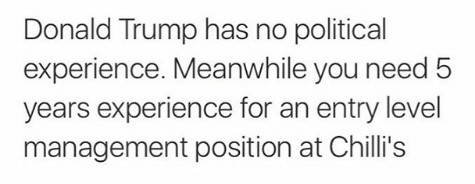I can’t justify how late this post is. I’ll explain some projects (and a job) that caused some real delay, but much of the delay is my own fault. I’ve tinkered with this post periodically but done no concentrated work on it. I’ve been a bad blogger. Shame on me.
This post begins the week before graduation in the office of my English adviser, the wonderful Betsy Panhorst. I figured Betsy might know of job opportunities, and it turns out, she did. A retired Baptist preacher looking for a student editor had recently reached out to her. He needed basic editing on an autobiography he’d written for his family (which includes 50 grandchildren). Betsy put us in touch, and we agreed on a rate $30 per 10 pages, roughly $30/hour.
I had gotten to know Betsy fairly well while I was at Auburn. She knew I would be interested in the editing gig, and she knew, she said, the perfect person for me to contact for more stable work, Auburn’s old Director of Special Projects.
It just happened that I knew this friend of hers. She, Jay Lamar, had helped a friend and me start a student organization my freshman year. After reconnecting with Jay and sending her my resume, she invited me to Montgomery for an interview that wound up more a visit than a Q & A. Jay had left Auburn to serve as the Executive Director of the Alabama Bicentennial Commission, a government organization running educational initiatives and statewide activities to commemorate Alabama’s 200th year of statehood, ALABAMA 200.
For two months now I’ve been the Program Assistant for the commission’s Education Committee. I do whatever helps the Education Committee function. Sometimes that means organizing meetings and taking minutes, sometimes it means calling through a spreadsheet. Sometimes it’s writing press releases, sometimes it’s making supply boxes for elementary school teachers. I’ve also been put in charge of social media, which is a fun challenge. I enjoy the variety of work, and I believe enough in the cause to make stapling 400 handouts feel genuinely worthwhile. I work 40 hours per week, usually commuting four days of the week. I make a comfortable amount of money. The only downside (if it is a downside) is that I’m technically a contract worker, which means quarterly taxes.
The opportunity to work for the bicentennial came while I was still editing the preacher’s autobiography. I figured I would work a couple weeks, then discuss the two gigs in one post. Almost immediately after I started work, though, I got a call from a friend of my grandmother’s who had heard about this brilliant, writerly grandson who did fabulous work. (Thanks, Grandma.) The man who called asked if I would write six short essays for a coffee table book about active wooden churches built in Alabama before 1900. He had taken the photographs for the book when his co-author, the writer, passed away. After a little research to figure out rates, we came to an agreement. I’m now working on the second of these essays, each about how a Christian denomination entered Alabama. (More interesting than it might sound: this is back when Alabama was the frontier.)
Once this project was secured, which took some prolonged discussions with the publisher, I was ready to share. Then I got caught up in actually working on the projects and just not giving this blog attention. Those are the reasons for the lateness of this post, and those are all my updates. (Oh, and I’ve done some babysitting.)
Since it felt necessary to address the delay upfront, I’ve saved the more abstract moral-of-the-story thing for here. I’ve heard several students define collegiate success by saying “It’s not the grades you make but the hands you shake.” I used to despise this expression. First, it mistakes the purpose of education in two ways, assuming that (1) grades or (2) LinkedIn connections are true measures of success. Second, the expression’s real use is usually to console people who have made poor grades. (Someone I was once talking to used the expression after admitting they made only Ds and Cs, as if to excuse his grades.) But this is a false consolation. Third and worst of all, the handshaking mentioned in the expression always seemed dishonest. It’s using people. Not working with them, not caring about them, but seeing them only for what they can do for you. Seeing people only for their hands.
Now that I’ve graduated and found work only by way of people I know, though, I see what leads some to value handshaking so highly. Only because I’ve gotten to know Betsy, Jay, and my grandmother—(thanks, again)—have I been able to find work that’s both challenging and enjoyable. Don’t get me wrong, “It’s not the grades you make but the hands you shake” is totally still misguided; what success is really about is who you are as a person. What I’ve realized, seeing the help others have been in the past few months, is the value of knowing other people. Not hands, but people, who speak and have full lives. I’ve become more appreciative of the people I know and feel lucky to have met them. This is not mere handshaking; it’s working together.

